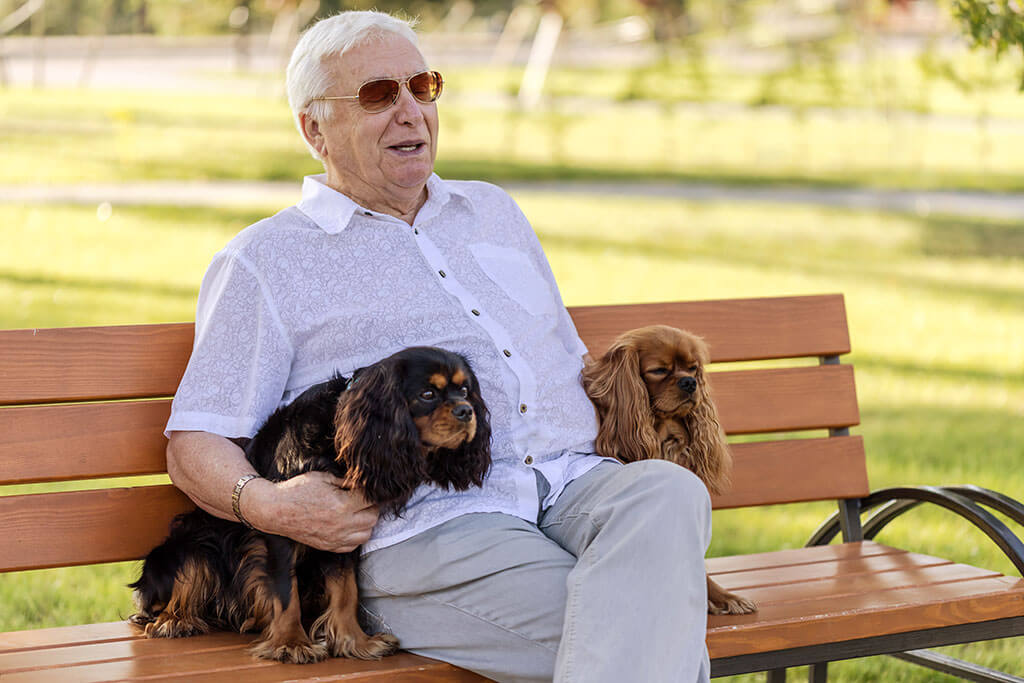A pet can bring wonders to your life and unexpected surprises for older adults. Interacting with pets can help to lift your moods and stay active.
If you’re considering bringing your pet to a retirement community that offers assisted living, you might be worried about the difficulties involved. Will there be enough space? Are there any restrictions? You don’t want to part with your beloved pet but are uncertain about the challenges involved.
This list of benefits and risks of bringing your pet to assisted living might help to answer some of your questions.
Companionship
A pet is more than just a friend. It can grow to become an important part of your family. You can feel less lonely knowing that your trusted companion is around. If you’ve lost close friends and families, the feelings of loss can be hard to deal with. Having a pet to accompany you can brighten up your days.
Positive Health Benefits
Research has shown that pets can lead to positive health benefits for older adults. Interacting with your pet can help to reduce stress levels. If you face depression or anxiety, having a pet around makes you more active and gives you a sense of purpose. Petting your pets also helps you to calm down and alleviate stress.
Because of these ‘magical properties’, a pet can make a difference, especially to older adults with dementia who require memory care. Pets can help to reduce agitation and inform the carer if an adult with dementia is wandering. Their companionship and love bring numerous benefits.
Pets Can Cause Conflict
You might be a dog or cat lover but not everyone likes to be around furry friends. Residents who share the same community with you could be allergic to pets or have had a bad experience with animals. Your pet could become a source of conflict and unhappiness for other residents who don’t enjoy being near animals. For example, your dog could be barking non-stop and disrupt the peace of other residents. They could lodge a complaint and the management has to look into the matter.
Inability to Care For Your Pet
Perhaps you have opted for assisted living because you require assistance with mobility or personalized care for certain health conditions. Have you thought about whether these would hinder your ability to take care of your pet?
Re-assess your health condition to see if you are able to take care of your pet. Grooming, feeding, and cleaning up your pet can become tougher as you age. You could end up not being about to look after your pet when your health no longer allows you to do so.
You Are Responsible for Your Pet’s Actions
You can’t be sure how your pets will react to new environments and people. You’re likely to meet other residents who also have pets, and there are risks that both of your pets could end up fighting. Pets can also accidentally damage property or hurt other residents. When such cases happen, you are liable for your pet’s actions. You’d have to pay for damaged property or medical costs.







